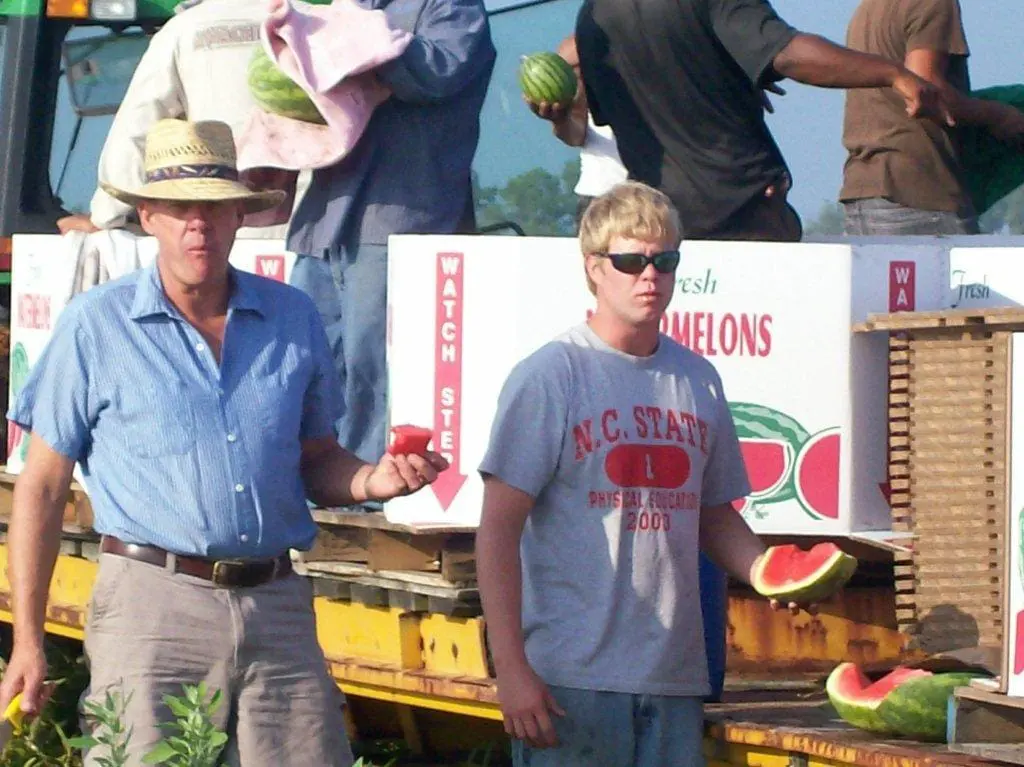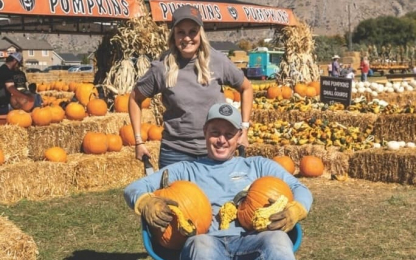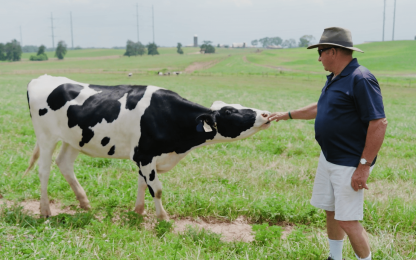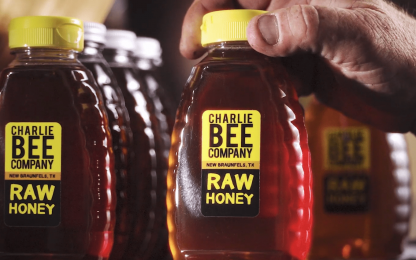“There is a lot of work to be done in our industry and in our community. I don’t want to miss out on any of it.” – Dick Tunnell
Like all successful farmers, Dick is focused on his farm’s long term success. He’s also strongly committed to giving back to his community and his industry.
A family tradition
Dick returned to his family’s 2,000-acre farm after earning an ag education degree, working with the help of his wife, Sandra, and now his son, David, to manage a highly diversified operation: the Tunnells raise a variety of vegetables, including cabbage, cucumbers, snap beans, squash, sweet corn as well as watermelon and field crops, including cotton, field corn, soybeans and wheat. “Our moderate weather and fertile soil provide an excellent location to grow vegetables. Living in hurricane alley, diversity has spread out the risks of farming,” says Dick.
Sustainable practices
The Tunnells use advanced production and management practices like water control structures and no-till practices to improve water and land quality. They test their soil regularly to minimize the use of fertilizers. More recently, they’ve integrated GPS technology on the farm to reduce excess use of fuel and labor. “This land has been in my family a long time and provides support to a lot of families in our community. I want to do everything I can to keep it healthy and fertile,” says Dick.
Commitment to excellence
The Tunnells’ efforts to grow the family business responsibly haven’t gone unnoticed. In 1982, they were awarded the North Carolina Farm Bureau Young Farmer and Rancher Family of the Year. Then, in 1994, Dick was named the North Carolina Farmer of the Year in competition for the Swisher Sweets/Sunbelt Expo Southeastern Farmer of the Year Award.
Sharing some of their bounty, for the past 10 years, Tunnell Farms has opened its sweet cornfields to the helping hands of local churches to feed the hungry. The Tunnells give 15–25 gleaners from various churches access to three to five acres of sweet corn that has just been harvested for market, leaving second ears for the gleaning. Gleaning is the process of collecting leftover crops from fields after they’ve been commercially harvested or on fields where it’s not economically profitable to harvest the crop.
Giving back
Each year the gleaners collect 2,400 to 3,000 pounds of sweet corn from Tunnell Farms, all of which goes to a local food bank for distribution. “It’s a good feeling to know that nothing is wasted and that we are helping folks right here,” says Dick.
A Farm Credit borrower for 37 years, Dick has served on the board of directors for East Carolina Farm Credit, and, more recently, AgCarolina Farm Credit. He’s also served on the boards of numerous industry groups, and says, “There is a lot of work to be done in our industry and in our community. I don’t want to miss out on any of it.”



